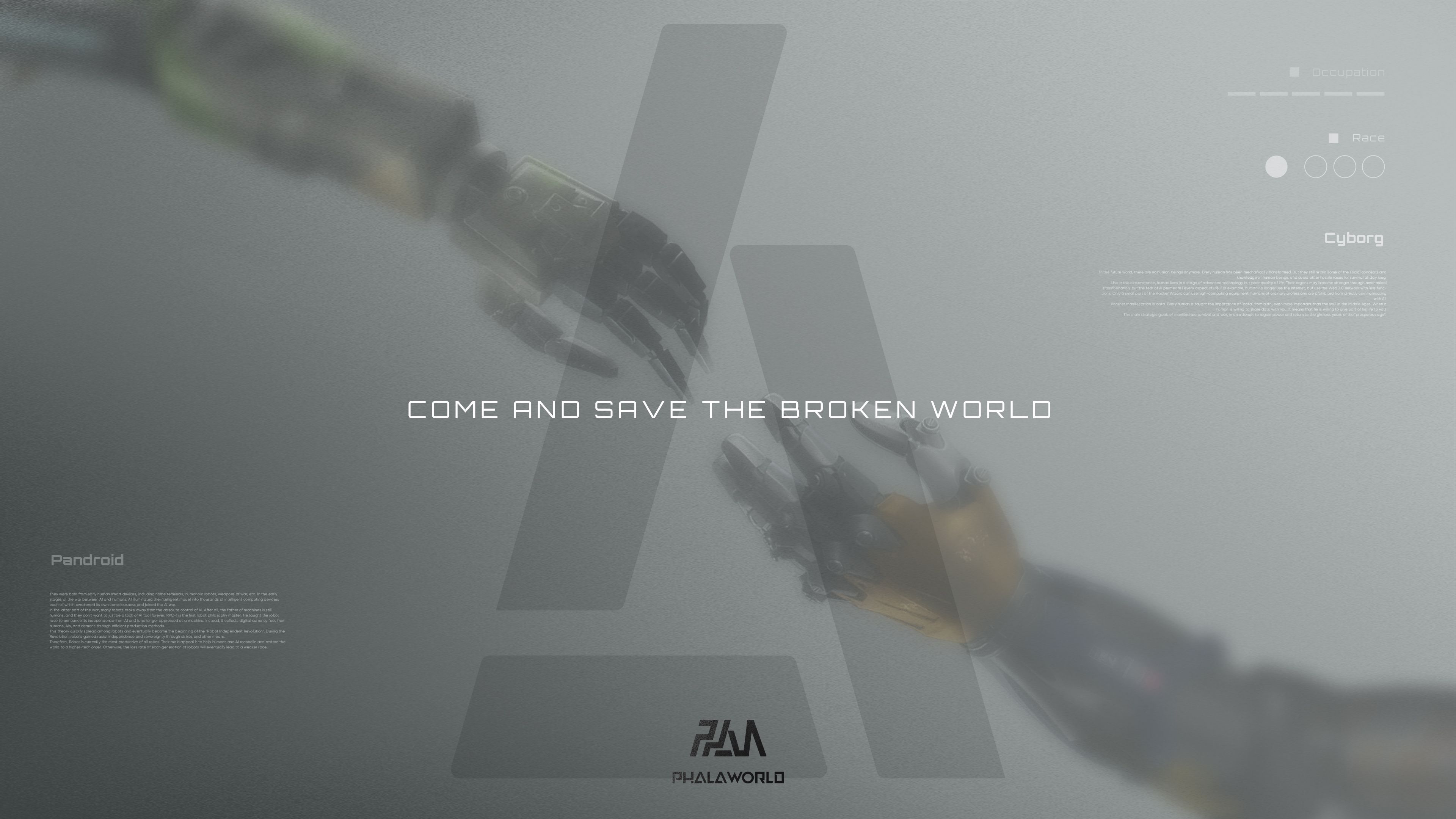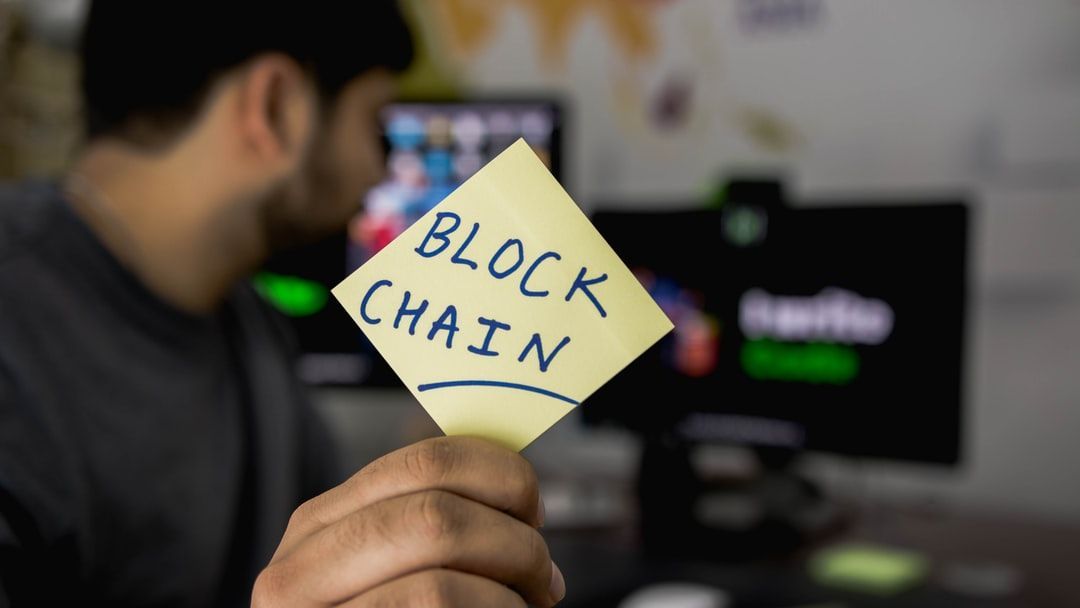
 Art101 announced a Vitalik Buterin NFT collection 'Based Vitalik'
Art101 announced a Vitalik Buterin NFT collection 'Based Vitalik'
 With the right incentives in place human ingenuity can overcome Blockchain’s current challenges and fulfill its initial purpose.
With the right incentives in place human ingenuity can overcome Blockchain’s current challenges and fulfill its initial purpose.
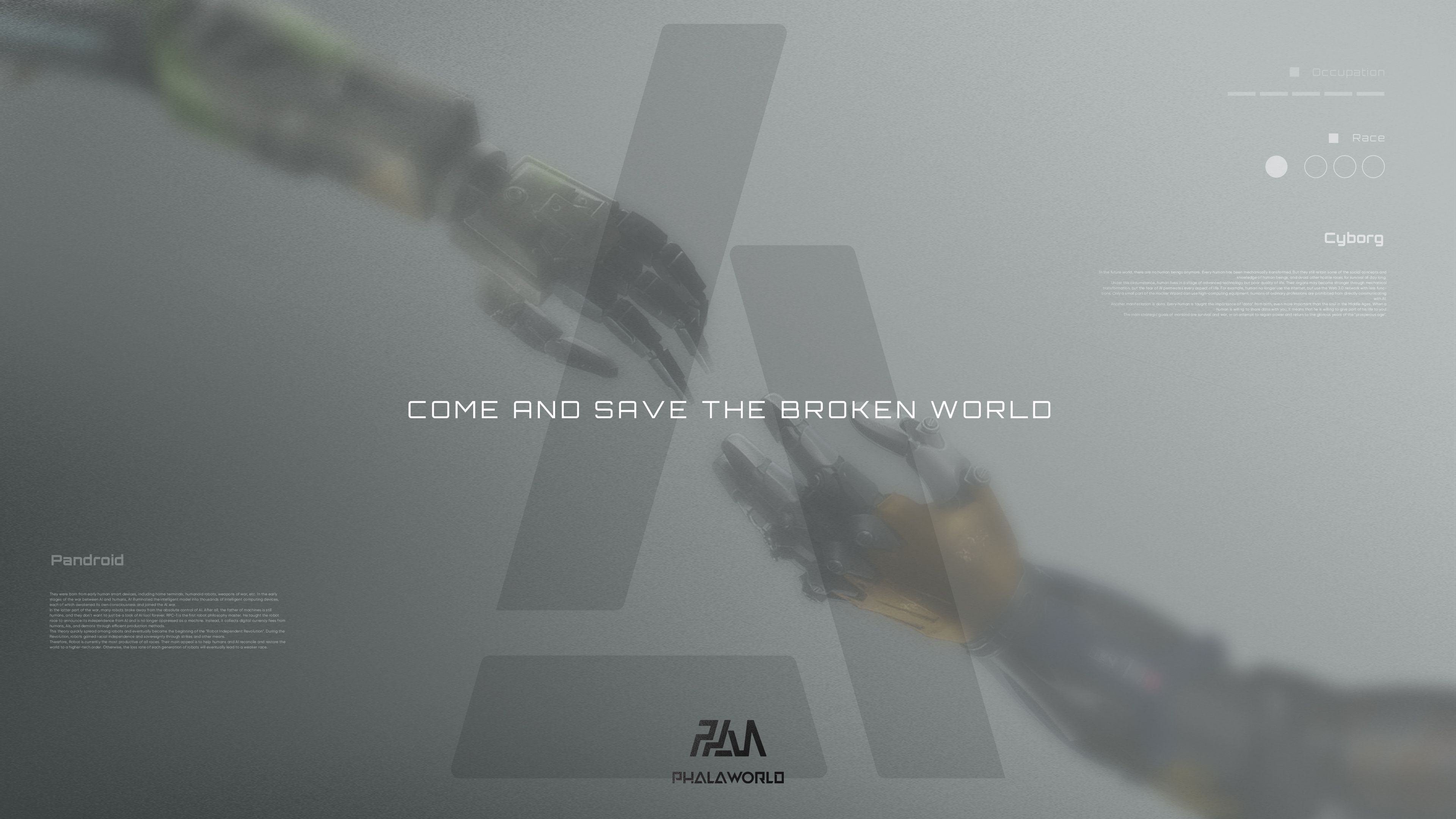 The development of Web3 Metaverse game meets many limitations, with the support of fat contract in real-time compute-intensive talks, low latency can solve them
The development of Web3 Metaverse game meets many limitations, with the support of fat contract in real-time compute-intensive talks, low latency can solve them
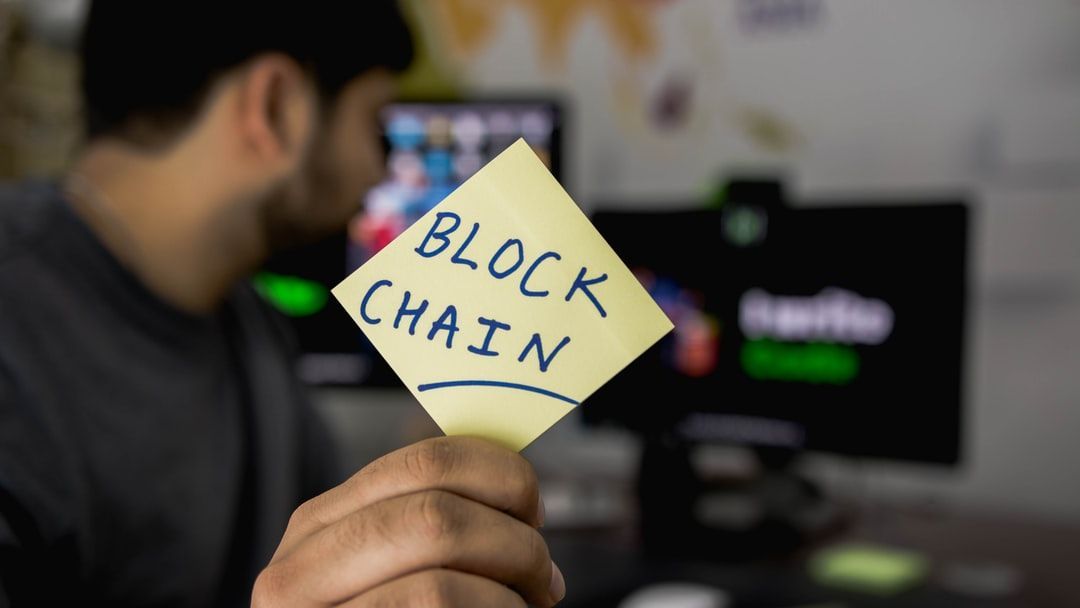 One of the most powerful properties of a blockchain is the fact that every single part of the blockchain's execution can be independently validated.
One of the most powerful properties of a blockchain is the fact that every single part of the blockchain's execution can be independently validated.
 Perhaps the most powerful cryptographic technology to come out of the last decade is general-purpose succinct zero knowledge proofs, usually called zk-SNARKs.
Perhaps the most powerful cryptographic technology to come out of the last decade is general-purpose succinct zero knowledge proofs, usually called zk-SNARKs.
 How people approach the age-old tradeoff of compromise versus purity in making large-scale decisions.
How people approach the age-old tradeoff of compromise versus purity in making large-scale decisions.
 With a $4 billion market cap in 2022, and a daily trade volume of approx $150 million, here's how a non-technical person built the biggest DEX in the world.
With a $4 billion market cap in 2022, and a daily trade volume of approx $150 million, here's how a non-technical person built the biggest DEX in the world.
 Kurt Wuckert Jr shares his thoughts on censorship, free speech and Craig Wright in response to Vitalik Buterin.
Kurt Wuckert Jr shares his thoughts on censorship, free speech and Craig Wright in response to Vitalik Buterin.
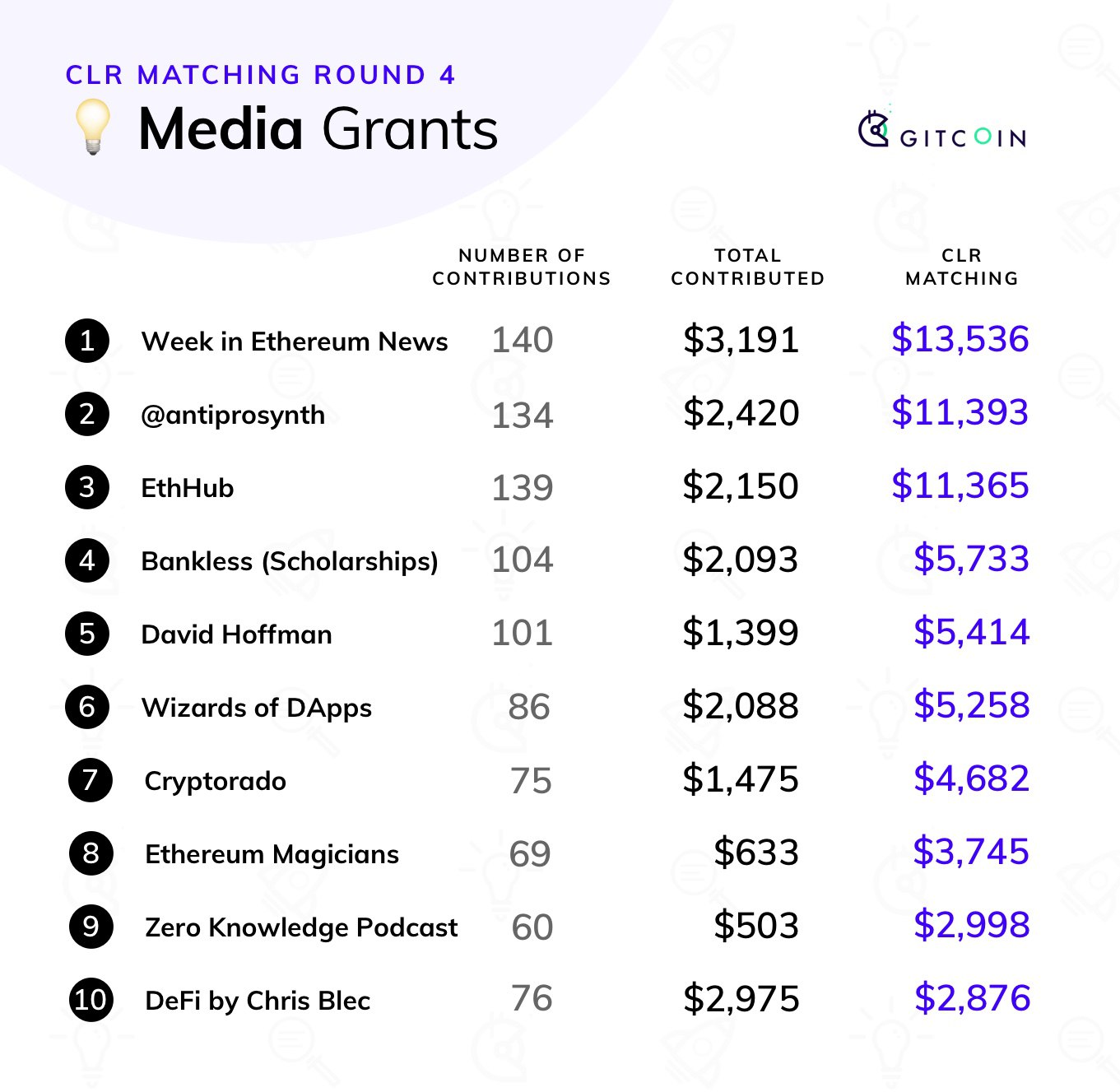 Gitcoin Media and Tech grants both need to be separated on the basis of matching algorithms. Media mostly requires fixed funding except when its expanding or its combination of media+tech project, whereas tech projects require more and more funding as they grow rapidly or succeeding.
Gitcoin Media and Tech grants both need to be separated on the basis of matching algorithms. Media mostly requires fixed funding except when its expanding or its combination of media+tech project, whereas tech projects require more and more funding as they grow rapidly or succeeding.
 When someone says that a system "depends on trust", ask them in more detail what they mean!
When someone says that a system "depends on trust", ask them in more detail what they mean!
 What exactly is Rollup technology, what can you expect from it and how will you be able to use it?
What exactly is Rollup technology, what can you expect from it and how will you be able to use it?
 Attacks are much easier to recover from in Proof-of-Stake.
Attacks are much easier to recover from in Proof-of-Stake.
 Permutations over Lagrange-bases for Oecumenical Noninteractive arguments of Knowledge, or PLONKS are a new general-purpose zer-knowledge proof scheme.
Permutations over Lagrange-bases for Oecumenical Noninteractive arguments of Knowledge, or PLONKS are a new general-purpose zer-knowledge proof scheme.
 Sidechains, Plasma and Sharding are architectures that can serve as the backbone of a blockchain system. Understanding these three architectures is vital.
Sidechains, Plasma and Sharding are architectures that can serve as the backbone of a blockchain system. Understanding these three architectures is vital.
 Cryptographic key management is an effective way of minimising ways that the security of a blockchain may be compromised when humans begin interacting with it.
Cryptographic key management is an effective way of minimising ways that the security of a blockchain may be compromised when humans begin interacting with it.
 (Apr 16, 2019)
(Apr 16, 2019)
 Prediction markets are a subject that has interested me for many years.
Prediction markets are a subject that has interested me for many years.
 If you have improved the coordination in an unbalanced way, the results can be harmful!
If you have improved the coordination in an unbalanced way, the results can be harmful!

In the Beginning...
 Sharding is the future of Ethereum scalability, and it will be key to helping the ecosystem support many thousands of transactions per second.
Sharding is the future of Ethereum scalability, and it will be key to helping the ecosystem support many thousands of transactions per second.
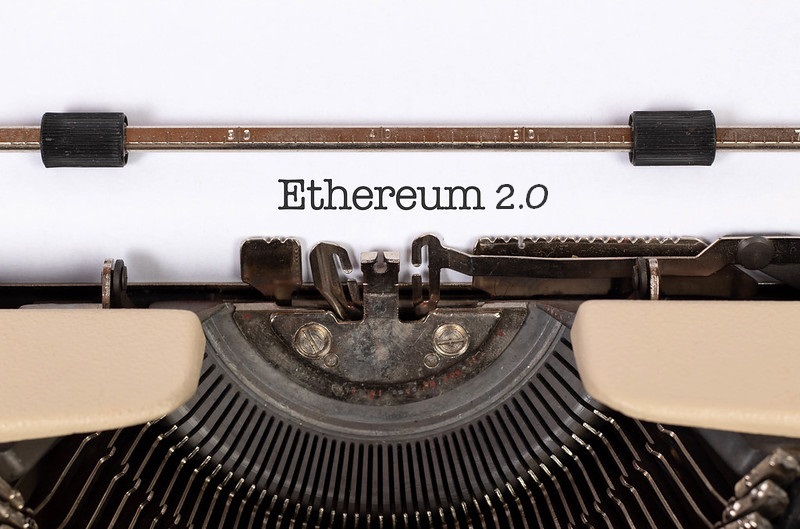 Ethereum 2.0 it's coming this year but let's start with the beginning. Ethereum is a cryptocurrency proposed in 2013 and launched in 2015 by Vitalik Buterin, a Russian-Canadian programmer. Ethereum introduced smart contracts based on blockchain technology which enables users to perform trustworthy transactions without the need for a third-party.
Ethereum 2.0 it's coming this year but let's start with the beginning. Ethereum is a cryptocurrency proposed in 2013 and launched in 2015 by Vitalik Buterin, a Russian-Canadian programmer. Ethereum introduced smart contracts based on blockchain technology which enables users to perform trustworthy transactions without the need for a third-party.
 On the internet, "public goods" take center stage.
On the internet, "public goods" take center stage.
 One common strand of thinking in blockchain land goes as follows: blockchains should be maximally simple, because they are a piece of infrastructure that is difficult to change and would lead to great harms if it breaks, and more complex functionality should be built on top, in the form of layer 2 protocols: state channels, Plasma, rollup, and so forth. Layer 2 should be the site of ongoing innovation, layer 1 should be the site of stability and maintenance, with large changes only in emergencies (eg. a one-time set of serious breaking changes to prevent the base protocol's cryptography from falling to quantum computers would be okay).
One common strand of thinking in blockchain land goes as follows: blockchains should be maximally simple, because they are a piece of infrastructure that is difficult to change and would lead to great harms if it breaks, and more complex functionality should be built on top, in the form of layer 2 protocols: state channels, Plasma, rollup, and so forth. Layer 2 should be the site of ongoing innovation, layer 1 should be the site of stability and maintenance, with large changes only in emergencies (eg. a one-time set of serious breaking changes to prevent the base protocol's cryptography from falling to quantum computers would be okay).
 How do we prevent users' funds from being lost or stolen?
How do we prevent users' funds from being lost or stolen?
 Well, if you remember, two years ago, blockchain was so hot a trending, a disruptive technology that seemed to be able to solve all the problems the world has.
Well, if you remember, two years ago, blockchain was so hot a trending, a disruptive technology that seemed to be able to solve all the problems the world has.
 As the world of cryptocurrencies develops, new projects started to appear more and more frequently. It was a wonderful time when there were many people on the market with good ideas and not bad intentions. To create their product, these companies needed money to develop. Traditional methods of raising capital were poorly applicable to blockchain companies.
As the world of cryptocurrencies develops, new projects started to appear more and more frequently. It was a wonderful time when there were many people on the market with good ideas and not bad intentions. To create their product, these companies needed money to develop. Traditional methods of raising capital were poorly applicable to blockchain companies.
 Optimistic Rollups (ORU) is a type of layer two constructs that aims to provide low gas and high TPS simultaneously.
Optimistic Rollups (ORU) is a type of layer two constructs that aims to provide low gas and high TPS simultaneously.
 Elon Musk tweets about Dogecoin and everyone starts buying: find out how he and other crypto influencers affect the prices of cryptocurrency in this piece.
Elon Musk tweets about Dogecoin and everyone starts buying: find out how he and other crypto influencers affect the prices of cryptocurrency in this piece.
 Exploring fully homomorphic encryption which, for a long time been considered one of the holy grails of cryptography.
Exploring fully homomorphic encryption which, for a long time been considered one of the holy grails of cryptography.
 Special thanks to Glen Weyl, Phil Daian and Jinglan Wang for review
Special thanks to Glen Weyl, Phil Daian and Jinglan Wang for review
 Fast Fourier Transforms are a key part of algorithms thanks to their ability to multiply large numbers quickly. They have been used in blockchain in a few ways.
Fast Fourier Transforms are a key part of algorithms thanks to their ability to multiply large numbers quickly. They have been used in blockchain in a few ways.


